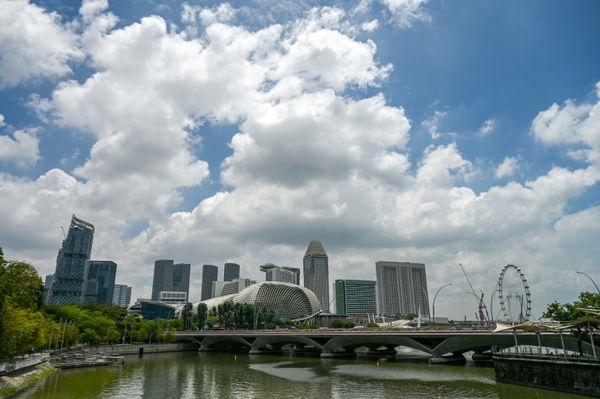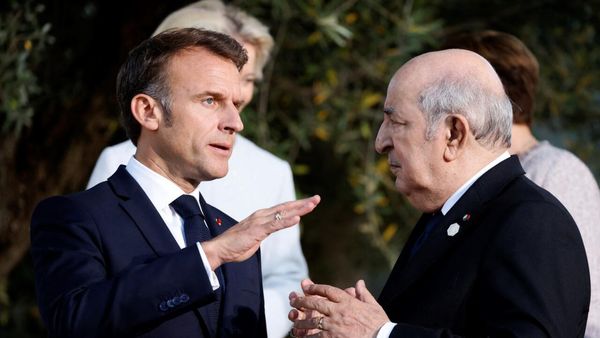Stunning gothic architecture, a medieval Old Town square and the historic Charles Bridge typically draw millions of tourists to Prague each year and, for the first time in almost 20 years, an Australian foreign minister will soon get a chance to experience the picturesque city on an official visit.
The ABC can reveal that Foreign Minister Marise Payne will fly to the Czech capital next week for a visit, where discussions will focus on shared concerns, such as cyber security and the growing fear of war in Ukraine.
Diplomatic sources say they are hopeful the landlocked, former Cold War foe could help Australia's efforts in Europe to fight back against Beijing's efforts to stymie the controversial AUKUS nuclear submarine plan.
Last week the ABC revealed that Australia is bulking-up specialised diplomatic teams in both Canberra and Vienna to win international acceptance for the AUKUS initiative as it braces for a massive "disinformation" campaign from China as well as Russia.
A public announcement of Senator Payne's Prague stopover is yet to be made, as diplomats work to confirm meetings with key figures in the new Czech government led by its Prime Minister, Petr Fiala.
Closer cooperation on cyber security is expected to be discussed by Senator Payne, as well as concerns over Chinese and Russian foreign interference operations, and the growing military ties between those two military powers.
Czech officials have privately claimed credit for helping convince some European nations to back a campaign to have former finance minister Mathias Cormann elected as the new head of the Organisation for Economic Cooperation and Development (OECD).
Last month, the Czech ambassador to Canberra lodged a diplomatic protest with the Department of Foreign Affairs and Trade after tennis player Renata Voráčová was deported, ahead of the Australian Open.
Concerns over Russia and China front of mind during European visit
Alexander Downer was the last Australian foreign minister to visit the Czech Republic in 2005, when questions about the Iraq War dominated.
However, in 2022, concerns over a possible Russian invasion of Ukraine are top of mind.
Since the Velvet Revolution, Czech lawmakers have remained wary of Moscow's continued efforts to interfere in the small NATO member's affairs, but in recent years there has been growing alarm about Chinese Communist Party's influence.
Last year the Czech Republic expelled dozens of Russian diplomats and their families after accusing Moscow of deploying intelligence agencies to carry out two explosions at a military arms depot in 2014.
Tensions between the Czech Republic and China also flared last year when the Taiwanese Foreign Minister, Joseph Wu, was welcomed by legislators to the central European nation's parliament.
Senator Payne will also travel to Germany to attend the high-profile Munich Security Conference, which brings together political leaders and top officials from around the region.
While the conference will focus on a broader array of security challenges, this year's event is likely to be consumed by discussions about whether Russia is on the brink of invading Ukraine and how NATO can deter Moscow.
Ahead of her arrival in Prague, the Foreign Minister will visit Paris, where the government is still smarting at Australia's decision last year to scrap the $90 billion French submarine project, in favour of a yet-to-be-chosen nuclear powered fleet.
During her brief stopover in Paris, Senator Payne will attend a meeting of Indo-Pacific foreign ministers organised by the French government.
The trip may also offer Senator Payne a chance to begin patching-up ties with France, although it is not yet clear if she has secured any bilateral meetings with her French counterparts.
The Foreign Minister was expected to visit Thailand on her way home, but she told Senate Estimates that leg of the trip was no longer occurring.







